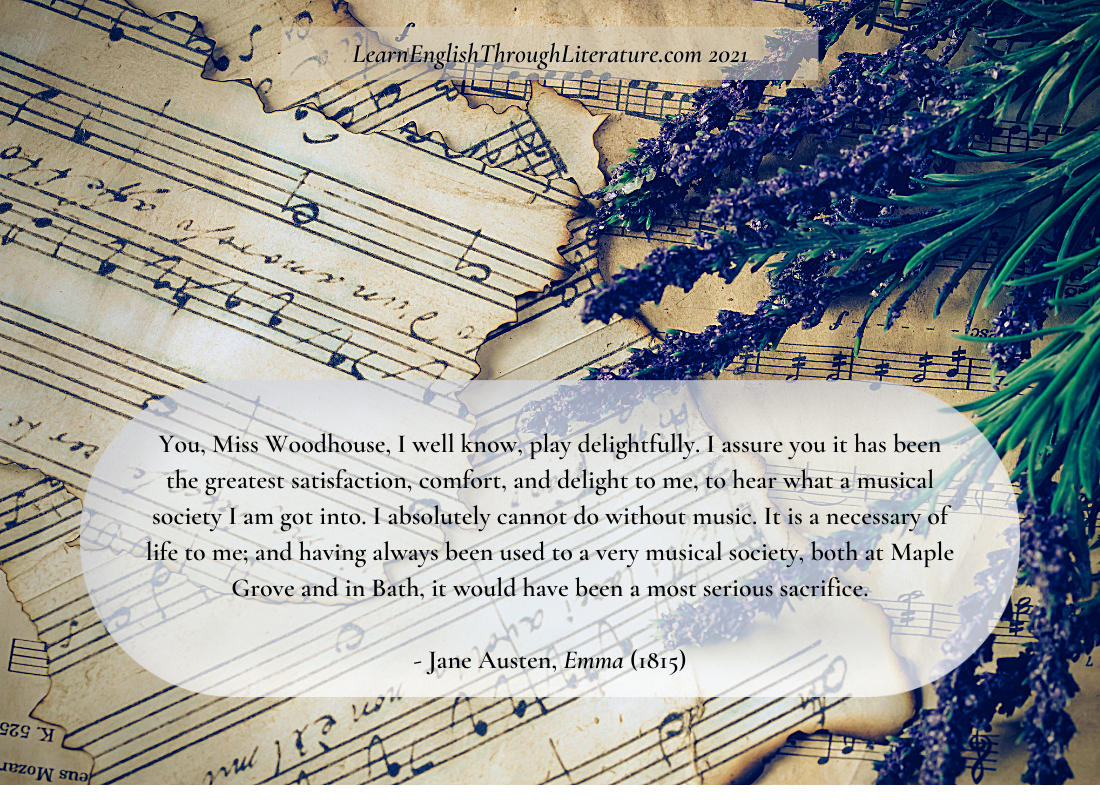Welcome to Part 2 of our Lesson, where we will focus on understanding ‘be used to’ and what makes it uniquely different from ‘used to’ constructions (covered in Part 1 of this Lesson).
…
📝 ‘BE USED TO’
Be (conjugate the verb) + Used To + Gerund OR Noun
✍️ This construction expresses a state of being accustomed to something.
For example: I brush my teeth after every meal. We could word it as:
✒️ E.g. I am used to brushing my teeth after every meal.
It can also emphasise that the subject is familiar or comfortable with something:
✒️ E.g. We are used to hearing birdsong every day since we moved to the countryside.
In other words, we are accustomed to hearing birdsong ever day.
👉 Notice how we follow it here with ‘brushing’ or ‘hearing’, examples of gerunds (a gerund is a noun that is created describing a continuous activity ending in an ‘-ing’).
Here are some examples found in Emma by Jane Austen.
📙 ‘His spirits required support. He was a nervous man, easily depressed; fond of every body that he was used to, and hating to part with them; hating change of every kind.’
– Jane Austen, Emma (emphasis mine – notice how the wording is reversed here, with the noun ‘every body’ being placed in front of ‘used to’, qualified by the relative pronoun ‘that’).
Alternatively, we can follow it with a noun, such as ‘the large parties’ below:
📙 “I think you will agree with me, (turning with a soft air to Emma,) I think I shall certainly have your approbation, though Mr. Knightley perhaps, from being used to the large parties of London, may not quite enter into our feelings.”
– Jane Austen, Emma (emphasis mine)
Or ‘a very musical society’ (also a noun phrase) in Mrs Elton’s comment below:
📙 “I absolutely cannot do without music. It is a necessary of life to me; and having always been used to a very musical society, both at Maple Grove and in Bath, it would have been a most serious sacrifice.”
– Jane Austen, Emma (emphasis mine)
We can also conjugate the verb ‘to be’ in the past to describe something that we were once accustomed to:
✒️ E.g., Before the pandemic lockdowns, we were used to leaving the house and meeting others whenever we wanted to.
✍️ ‘was/were + used to + gerund/noun’ indicates something was customary or normal in the past.
And from Jane Austen:
📙 “Miss Taylor has been used to have two persons to please; she will now have but one.”
– Jane Austen, Emma (emphasis mine)
👉 NOTE: When we use this construction in the negative (regardless of whether we are talking about something in the present or past tense), we do not have to remove the ‘-d’ from ‘be used to’.
Here are some examples:
✒️ E.g., Our elderly neighbour was not used to using the internet, Zoom, and emails before the pandemic.
✒️ E.g., He wasn’t used to cooking for himself when he first left home and went to university.
…
So here we have the differences between ‘used to’ vs ‘be used to’. In summary:
‘used to’ = past activity that has since changed
‘be used to’ = accustomed to something, familiar or comfortable with something
👉 Here is a quick exercise for you: try to create a sentence that for each one by answering these questions.
1) What did you use to do when you were a child?
2) What is something you are used to doing every day now?




